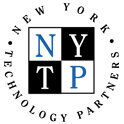Onboarding & The Employee Experience
The first days, weeks, and months are often crucial for laying the foundation of a successful new hire. An increasing emphasis is being placed on Employee Experience (EX) in many companies — a broad term encompassing training, company benefits, policies, and company culture. According to a 2020 study conducted by LinkedIn, companies that rated highly on EX factors experienced lower attrition rates. The study found that companies with highly rated employee training had a 53% lower attrition rate, and companies with a highly rated purposeful mission received a 49% lower attrition rate.
The onboarding process is critical in setting an employee’s expectations for work — allowing a new hire to learn their relationship between the organization and its stakeholders, key role expectations, the culture of the organization.
According to a 2013 study, organizations that implemented effective onboarding processes were associated with:
Higher job satisfaction and organizational commitment.
Higher work performance
Lower turnover
Less stress
Onboarding Remotely
The process of onboarding new hires (and the administration of Employee Experience initiatives by extension) has been shaken up by Coronavirus-related changes to work procedures and the meteoritic rise in the use of remote working technology. Granted that 56% of Americans in January were “always” or sometimes working remotely in January, it is safe to say that many workers and organizations have become acclimated to remote work over the pandemic.
Onboarding experiences that are mostly or completely remote is and has been an inevitability for many new hires for the past year. While onboarding processes have often involved large amounts of in-person interaction in the past, it is possible for organizations to connect with and integrate new hires using remote technology. According to SHRM, among the most key steps in establishing the foundation for new working relationships between the new hire, in addition to ensuring that the hire feels they have a voice within the company. Making efforts to establish good rapport with your new hire and their team can reduce the risk of a hire feeling alienated from their work, thus improving morale and engagement.
Additionally, given the importance of technology in working remotely, ensuring that a new hire’s technology setup is working properly — such as a stable internet connection, access to proper accounts and affiliated usernames/passwords, and so forth — is imperative for proper access to work-related information. While several departmental IT professionals are probably stretched thin with work requests, consider recording videos or writing documentation of FAQs for common problems or setup procedures to reduce the need for IT to respond to common concerns.
Moreover, as important as it is to familiarize a new hire with company policies and procedures, it is also good to provide breaks during the onboarding process, to give your new hires to process all the new information they are receiving.
Onboarding Gen Z
Generation Z, roughly defined as the age cohort born between 1995 and 2007, are the most recent entrants to the workforce. Americans within Gen Z represent approximately a fifth of the U.S. population and are the most racially diverse generation to date. According to a 2020 study, within the onboarding process, Gen Z hires tend to be most concerned with being involved with meaningful work. According to the author of the study, meaningful work for Gen Zs often involves contributing to a company/organization whose values align with their own. Establishing company culture and values from the outset of a new hire’s career can be particularly reaffirming for Gen Zs. Additionally, Gen Z’s tech-savviness often means that members of this generational cohort are keen to automate mundane/repetitive tasks (when possible) to focus on other matters.
Gen Z individuals additionally tend to appreciate receiving frequent feedback from their managers and supervisors to know that they are meeting expectations sufficiently. Scheduling regular and frequent status check-ins can be reassuring for Gen Z new hires, particularly during remote work operations, where a dispersed workforce can make it more difficult to keep tabs on progress.
In addition to the previously mentioned items, Gen Z tends to prioritize forming personal connections with their coworkers, getting a transparent and “bigger picture” understanding of their role within the organization, in addition to opportunities for continuous learning and development.
Conclusion
Clearly, the first days, weeks, and months are among the most decisive in determining the overall success of a new hire. Establishing expectations and lines of communication between the hire and the organization for which the employee works is paramount in laying the foundation for effective Employee Experience.
If your company is seeking to add additional hires to your workforce, consider using a staffing agency to streamline the process of finding and onboarding qualified hires. New York Technology Partners is an agency which specializes in making placements for the STEM, IT, and Skilled Trades disciplines, and the firm has aided several businesses locate hires that are right for the job and for their organizational culture. If you are interested in bringing more skilled workers to speak with one of our recruiters a call at (585) 300–4720 from 9 a.m. to 5 p.m. EST, Monday through Friday.
